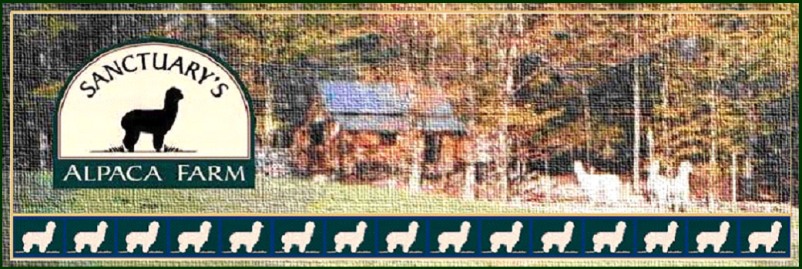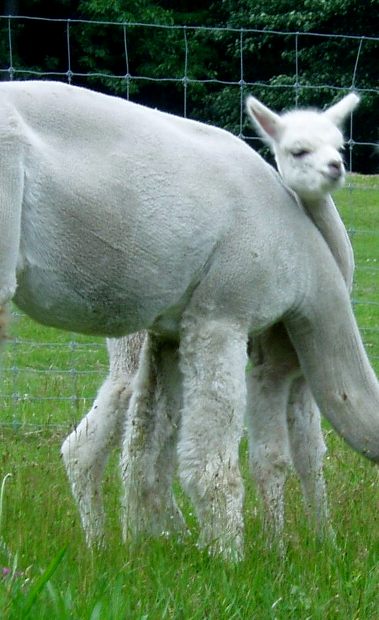 |
|
About alpacas |
| Alpacas are members of the
camelid family, native to the Andean Altiplano of
South America, where they have been domesticated
for thousands of years for their exquisitely soft
and luxurious fiber.
Today, alpacas are also being raised in
Australia, New Zealand, Europe, Africa and North
America.
Alpaca fleece comes in 22 recognized natural colors, from pure white, shades of fawn, brown, and gray to true black. Clothing and products made from alpaca fiber are highly resilient, lightweight and warm, prized for their soft, silky feel. Those who have the privilege of working with these animals appreciate not only their fleece, but also their intelligence and gentle, inquisitive dispositions. They have appropriately been called the natural fiber animal fit for royalty. |
| There are two kinds of
alpacas, suri and huacaya, the main difference
between them being in the fleece. stand out from the body giving a wooly appearance long pencil-like ringlets Alpacas weigh from 100-200 lbs. minerals. little damage to the earth. averaging from 335-355 days. |
 |
|
Junie B, 2 wks old |
| Alpacas need shelter from summer heat and against
frigid winter weather. As with any livestock, alpacas require food, shelter and attention appropriate to their needs, though their care is relatively easy. With care and wise management, raising alpacas has the potential to be a rewarding business, while simultaneously enriching the lives of those who shepherd them. |
